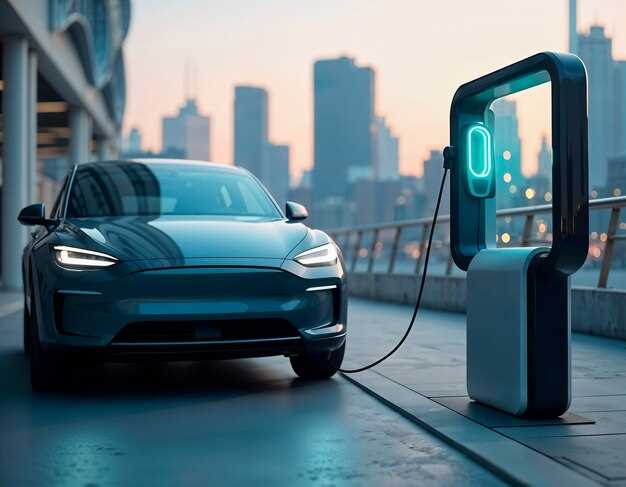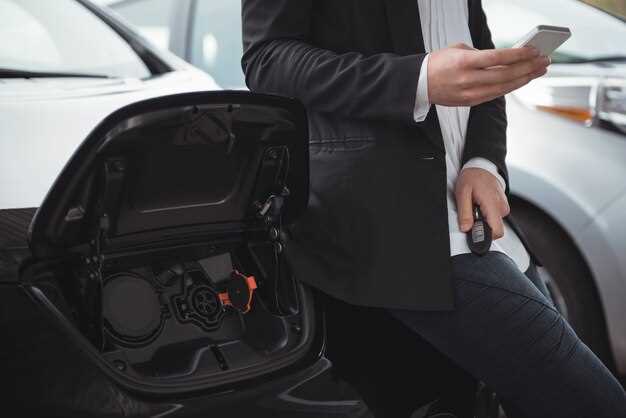
The automotive landscape is rapidly evolving, with hybrid technology gaining traction among environmentally conscious consumers. BMW, a brand synonymous with luxury and performance, is embracing this trend by expanding its range of hybrid vehicles. As we look towards 2025, it’s essential to explore the best plug-in hybrid options that BMW will offer, combining efficiency with the exhilarating driving experience the brand is known for.
Plug-in hybrids represent an innovative solution, allowing drivers to enjoy the benefits of electric driving without sacrificing the flexibility of a gasoline engine. BMW’s plug-in hybrid lineup is designed to cater to both urban dwellers and those who seek adventurous journeys, making them suitable for a variety of lifestyles. In this article, we will delve into the top BMW plug-in hybrids to consider, examining their features, performance, and the technology that sets them apart in a competitive market.
As sustainability becomes a priority for many, BMW’s commitment to hybrid technology showcases its dedication to reducing carbon footprints without compromising on style and performance. The upcoming models promise to amplify this ethos, offering innovative designs and cutting-edge technology that highlight the brand’s leadership in the hybrid vehicle segment. Join us as we explore the future of driving with the best BMW plug-in hybrids for 2025.
Top BMW PHEV Models Featuring Enhanced Electric Range

The demand for plug-in hybrid vehicles (PHEVs) is steadily rising, and BMW has been at the forefront of this transition, continuously innovating to enhance their hybrid offerings. As we look ahead to 2025, several BMW models stand out for their impressive electric range, providing drivers with efficient and versatile solutions for both urban and long-distance commuting.
One of the notable models is the BMW 330e, which combines a sporty driving experience with an extended electric range. This sedan features an advanced hybrid system that allows for an all-electric driving range of approximately 23 miles, making it suitable for daily errands without consuming any gasoline. Its seamless transition between electric and gasoline power ensures a smooth and responsive ride.
Another remarkable entry is the BMW X5 xDrive45e. This SUV not only offers a robust electric range of up to 30 miles but also boasts the practicality and versatility that SUV enthusiasts crave. Its spacious interior and advanced technology make it a perfect choice for families who require both performance and efficiency in their travels.
The BMW 530e further exemplifies the brand’s commitment to hybrid technology. With an electric range nearing 21 miles, this luxury sedan combines comfort with sustainability. The intelligent energy management system optimizes battery usage, ensuring that drivers can maximize their electric driving potential while enjoying the refined features that BMW is known for.
For those seeking a more compact option, the BMW 225xe Active Tourer delivers an impressive all-electric range of approximately 25 miles. This model epitomizes versatility, offering the agility of a hatchback while maintaining eco-friendly credentials. Its spacious cabin and thoughtful storage solutions make it a practical choice for urban dwellers.
As BMW advances its plug-in hybrid technology, the focus on enhancing electric range remains a top priority. The upcoming models are expected to offer even greater efficiencies, further bridging the gap between traditional combustion engines and electric vehicles. With BMW’s commitment to sustainability, the future looks bright for eco-conscious drivers seeking hybrid solutions.
Comparative Analysis of Performance and Fuel Economy in BMW Hybrids

When exploring BMW’s lineup of hybrid and plug-in hybrid electric vehicles (PHEVs), it’s essential to consider both performance metrics and fuel economy. BMW has made significant strides in engineering that not only meet environmental standards but also enhance the driving experience.
In terms of performance, BMW hybrids typically combine a gasoline engine with an electric motor, allowing for robust acceleration and dynamic handling. For example, the BMW 530e offers a combined output of approximately 288 horsepower, enabling a 0-60 mph time of around 5.6 seconds. This performance is comparable to many traditional gasoline engines, showcasing that hybrids do not compromise on driving excitement.
On the fuel economy front, BMW’s PHEVs excel in both city and highway efficiency. Models like the BMW X5 xDrive45e achieve an impressive estimated electric-only range of up to 30 miles, allowing for short commutes to be completed without engaging the gasoline engine. When the gasoline engine is in play, the X5 maintains a commendable efficiency of about 50 MPGe, making it a practical choice for environmentally-conscious consumers.
Furthermore, the charging capabilities of these hybrids play a crucial role in their overall efficiency. With advanced regenerative braking systems, BMW hybrids can recapture energy during braking, enhancing their electric range and overall fuel economy. Owners can also charge their vehicles at home or public charging stations, providing flexibility in managing energy consumption.
Ultimately, the decision between different BMW hybrid models will hinge on individual preferences for performance versus fuel efficiency. While the 330e is ideal for those who prioritize a sporty drive, the larger X5 xDrive45e caters to families needing space without sacrificing efficiency. Therefore, understanding both performance and fuel economy is essential for potential buyers looking to adopt a BMW hybrid lifestyle.
Key Features and Technologies in 2025 BMW Plug-In Hybrids
As we move into 2025, BMW’s plug-in hybrid electric vehicles (PHEVs) are set to feature advanced technologies that enhance performance, efficiency, and user experience. One of the most notable developments is the integration of a highly efficient powertrain that combines a powerful internal combustion engine with an electric motor. This hybrid synergy promotes improved fuel economy and reduced emissions, making driving more sustainable.
The battery technology used in the 2025 BMW PHEVs showcases significant improvements, including higher energy density and faster charging capabilities. These advancements allow for extended electric-only driving ranges, enabling drivers to complete more daily commutes without needing to rely on gasoline. Additionally, regenerative braking systems are optimized to recover energy during deceleration, further enhancing the vehicle’s overall efficiency.
Another key feature is the implementation of smart driving technologies, such as adaptive cruise control with electric drive mode. This feature not only ensures a smoother driving experience but also maximizes efficiency by intelligently switching between electric and hybrid modes depending on the driving conditions.
Enhanced connectivity is also a focus in 2025, with BMW’s latest infotainment systems supporting seamless smartphone integration through platforms like Apple CarPlay and Android Auto. These systems offer real-time data on battery status, charging locations, and energy consumption, helping drivers make informed decisions regarding their travel routes.
Furthermore, advanced safety features and driver-assistance technologies are standard in BMW PHEVs, including lane-keeping assistance, automated parking, and collision avoidance systems. These technologies enhance safety while providing an intuitive driving experience, making it easier for drivers to transition between hybrid and electric modes.
In summary, the 2025 BMW plug-in hybrids are poised to offer a combination of advanced powertrains, cutting-edge battery technology, smart driving features, enhanced connectivity, and comprehensive safety systems. This perfect blend of hybrid functionality and innovative technologies positions BMW as a leader in the evolving automotive landscape.
